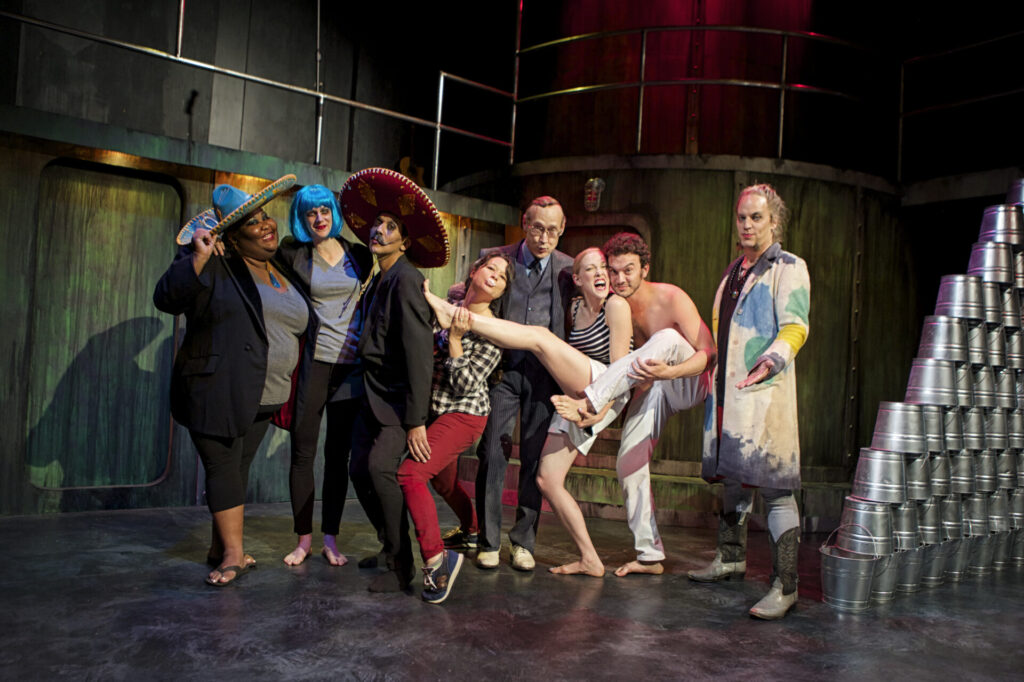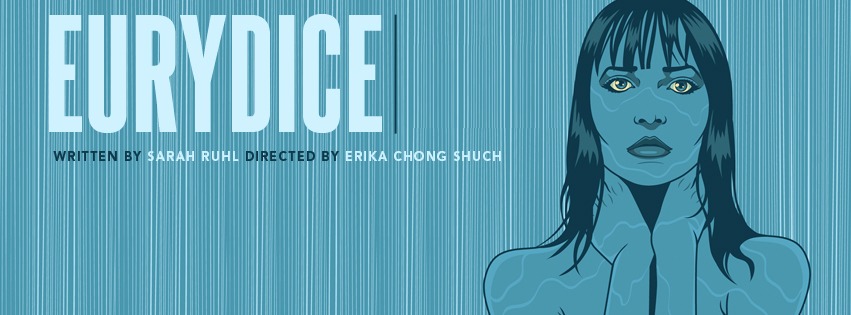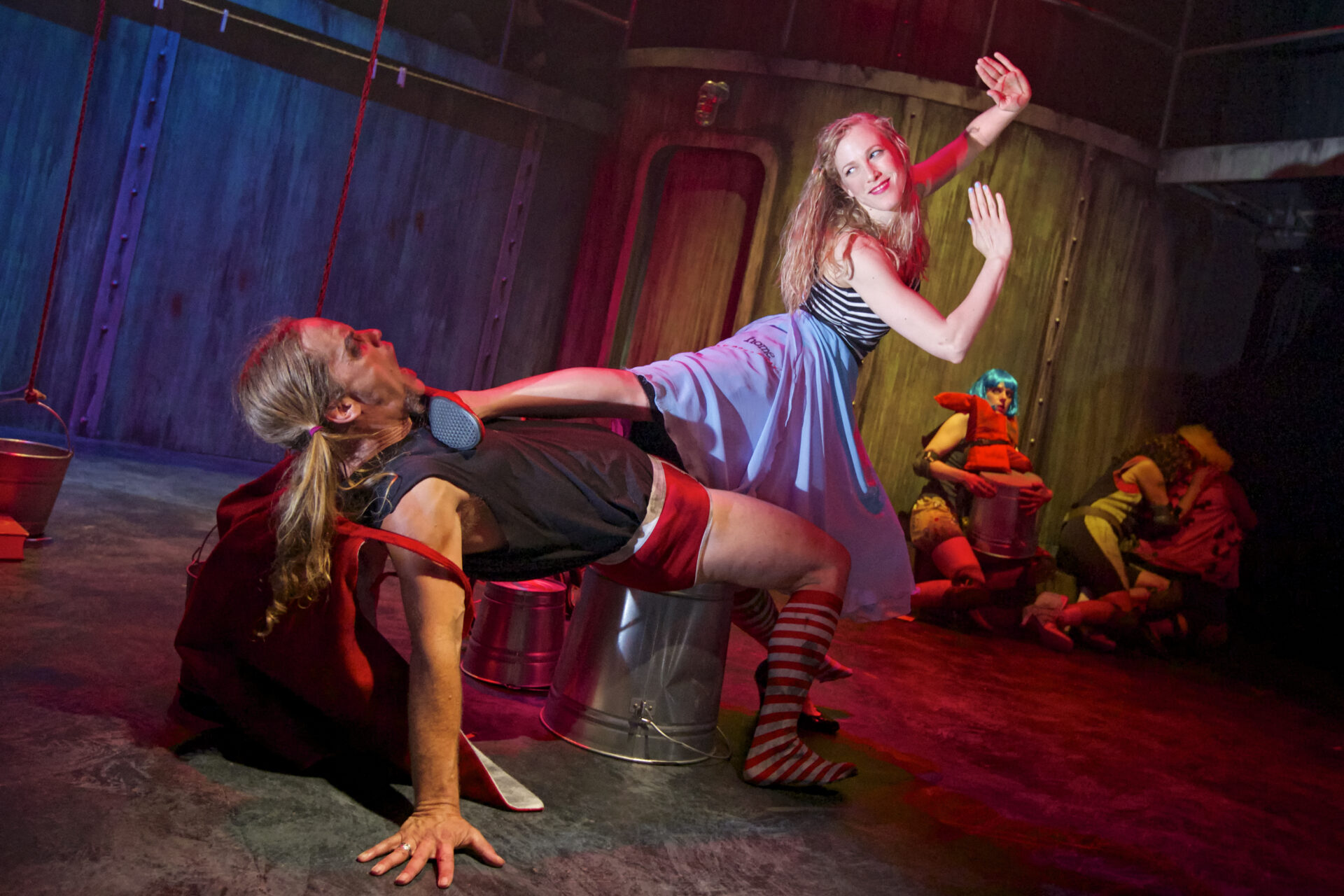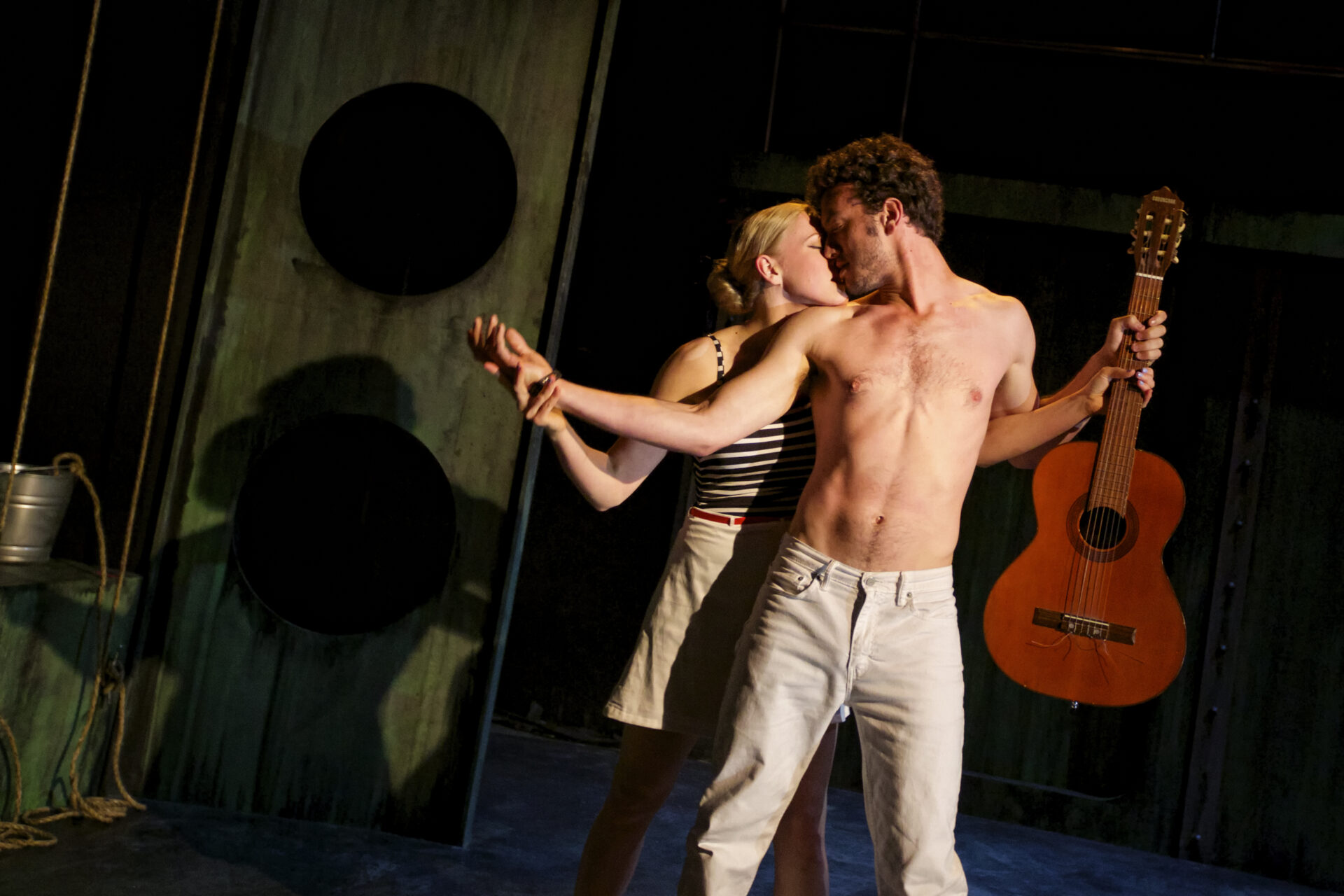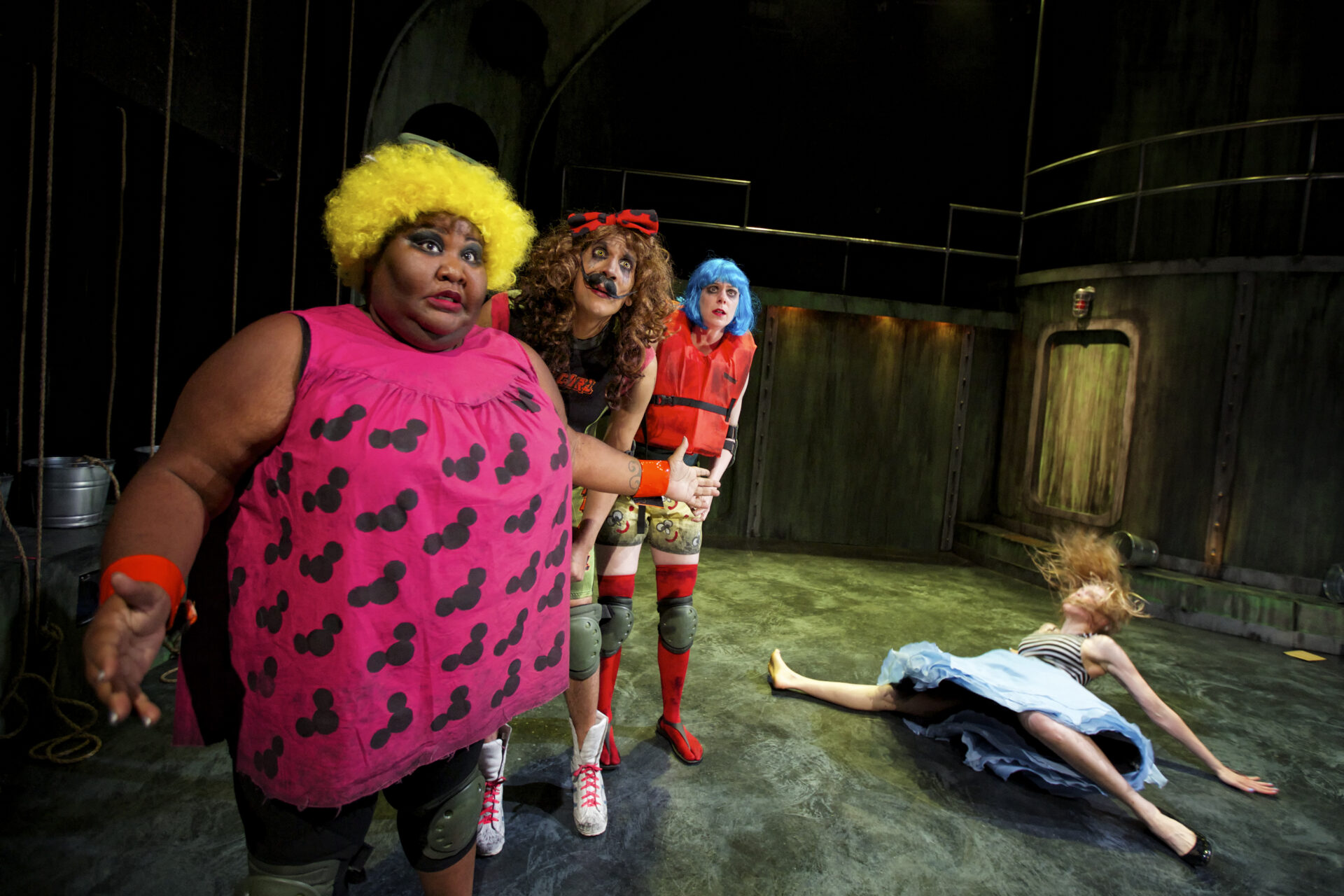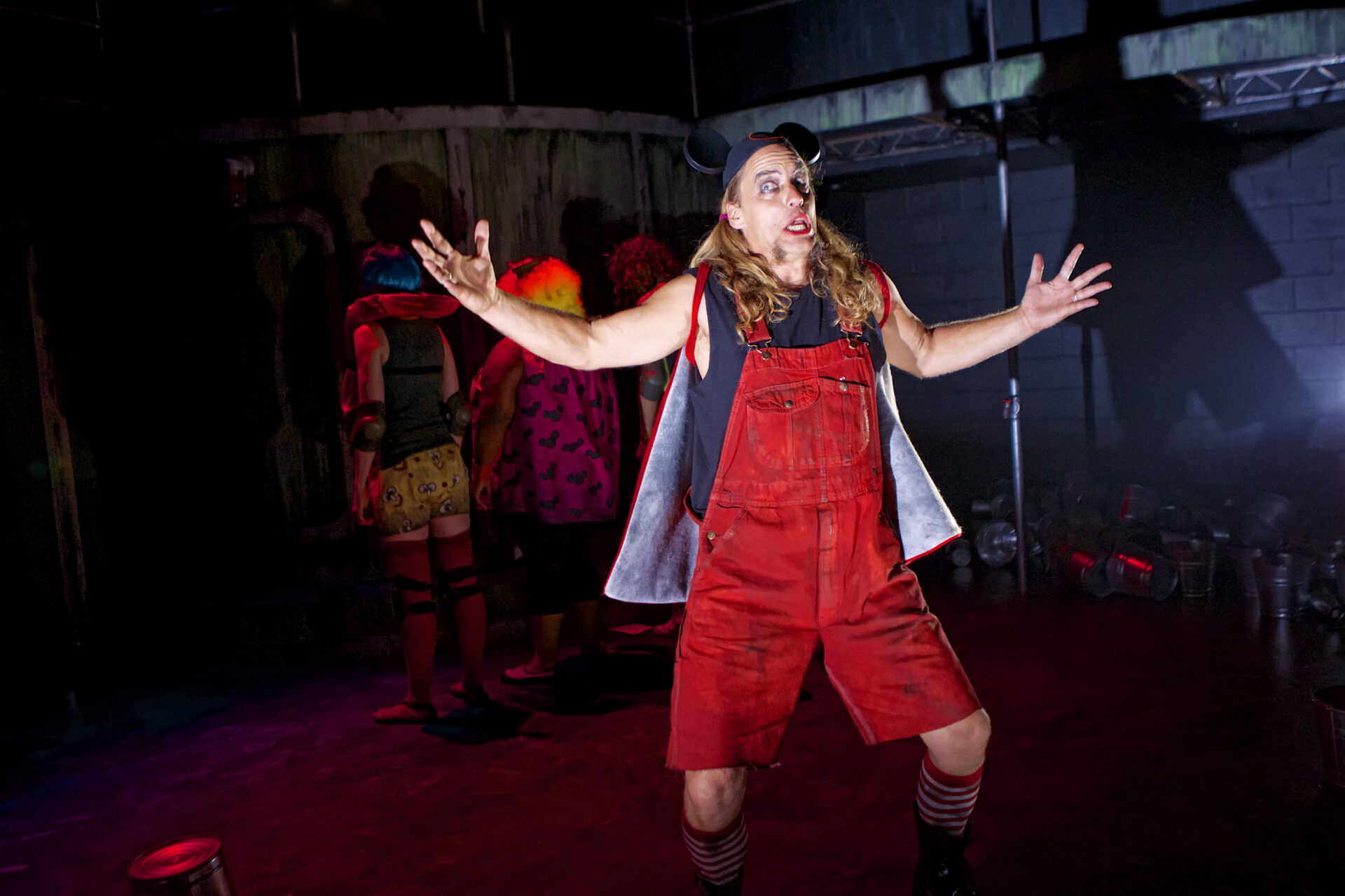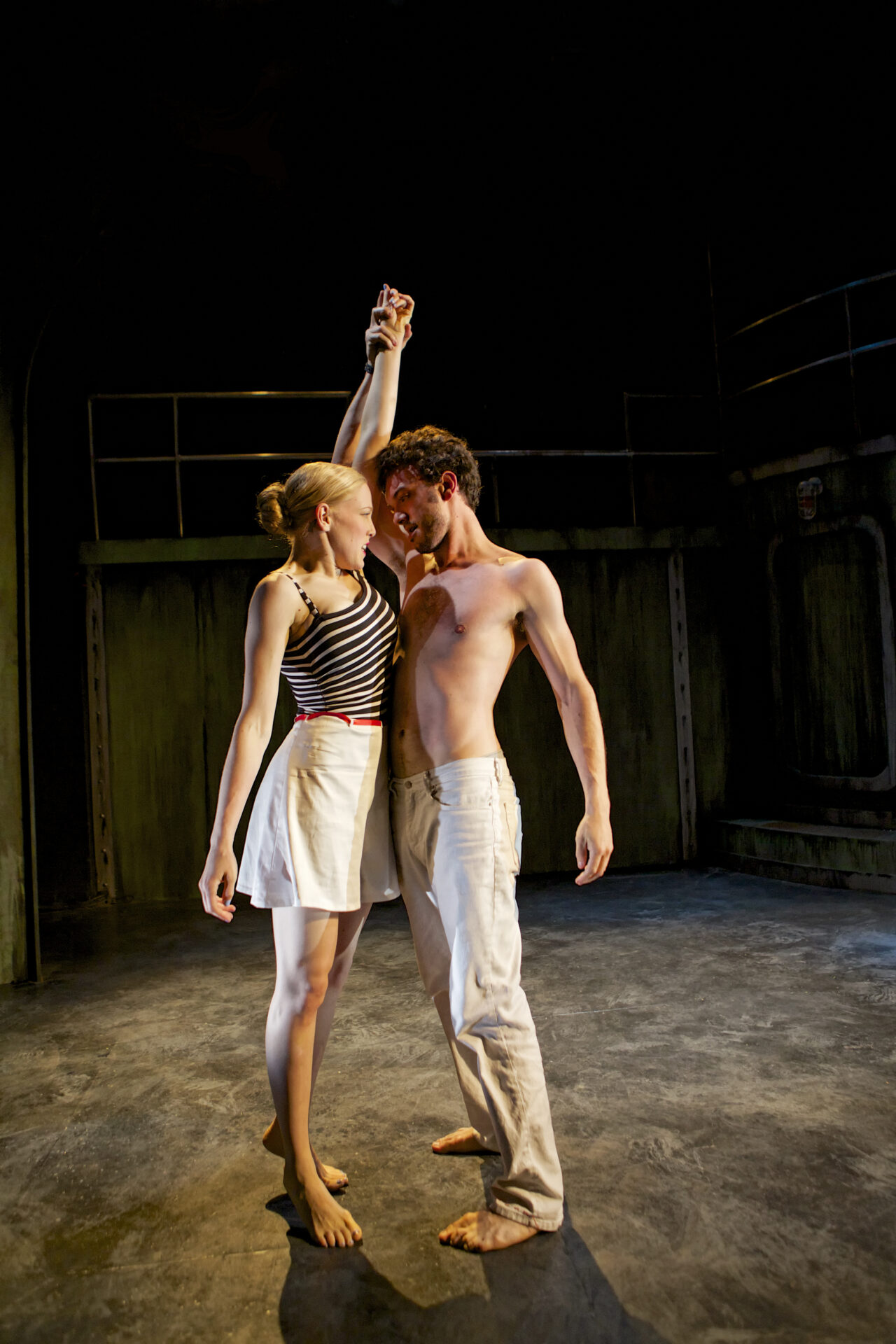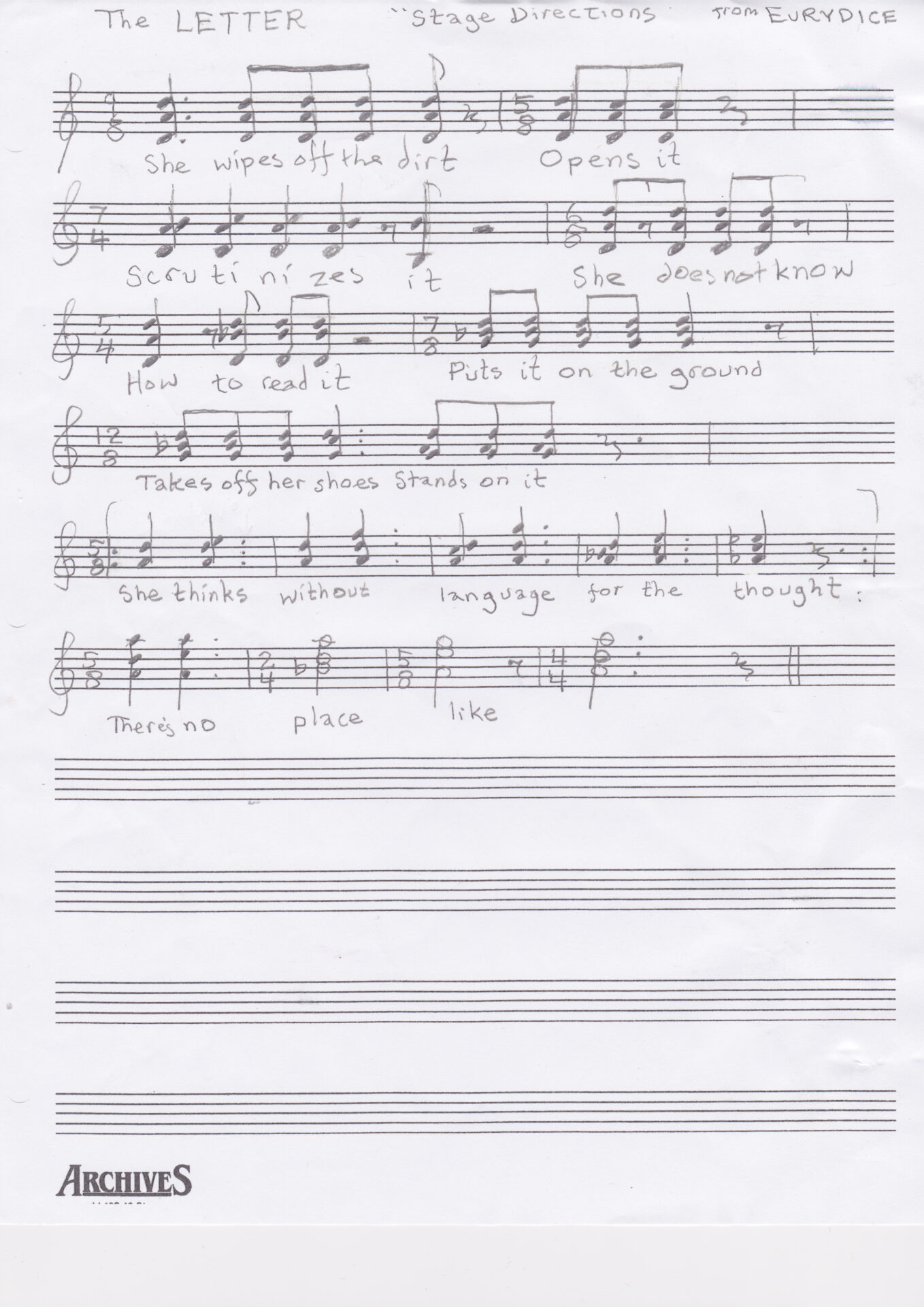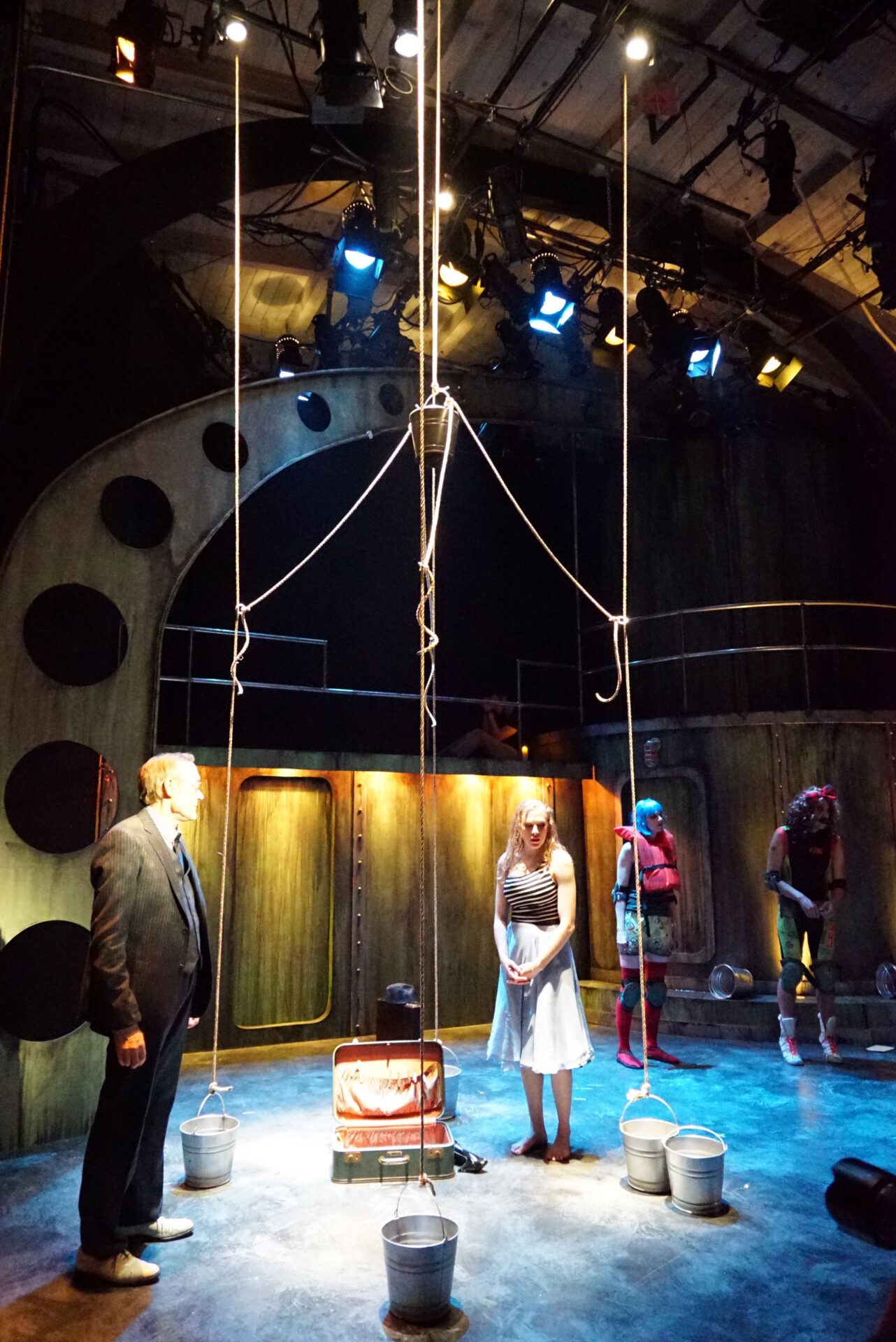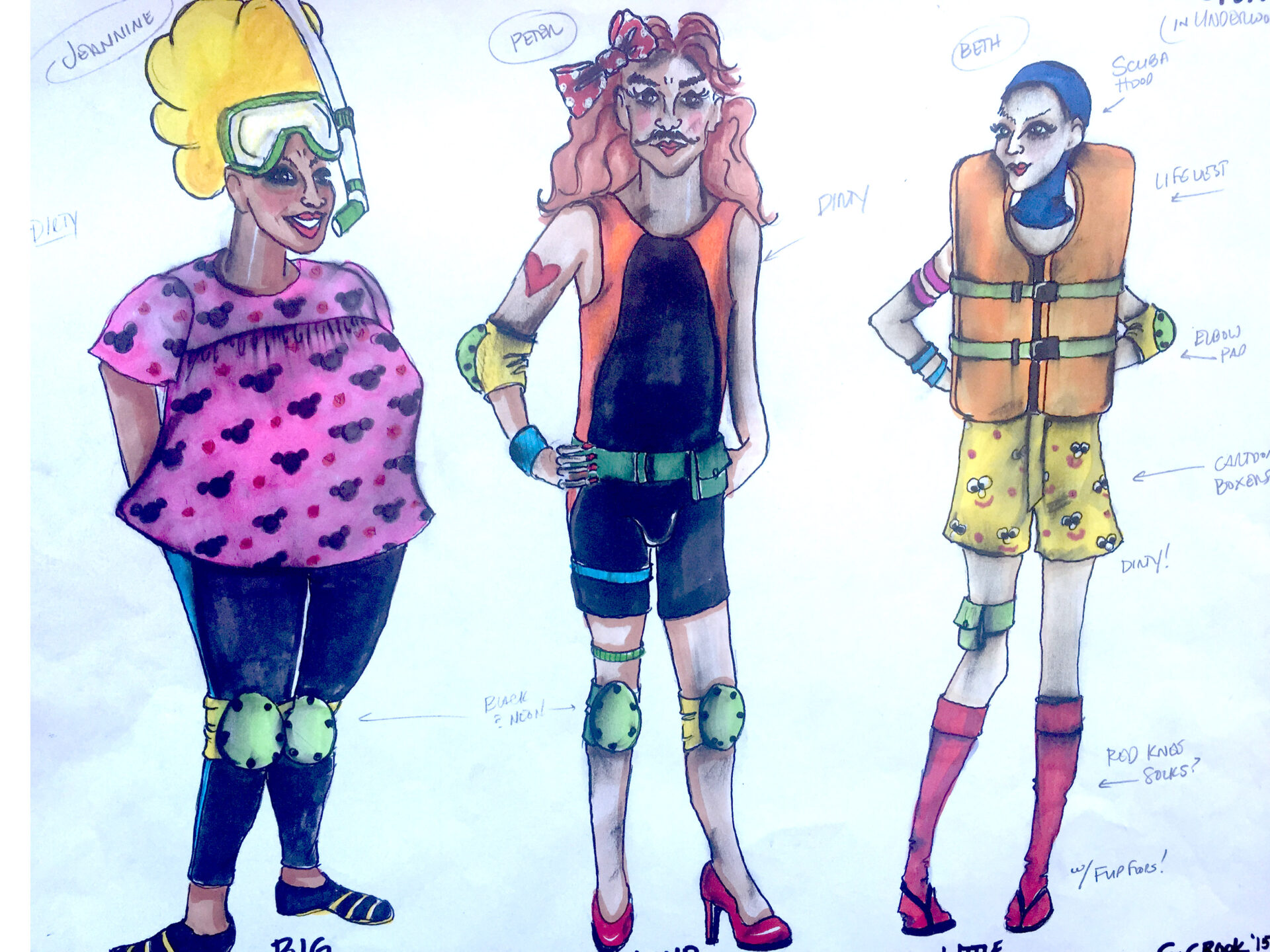eurydice
By Sarah Ruhl
Directed by Erika Chong Shuch
On the day Eurydice is to marry her true love Orpheus, a misstep sends her to the surreal depths of the Underworld. There she has a surprising reunion and must decide whether to follow Orpheus back to the land of the living. This tenderhearted comedy/love story solidified Ruhl as one of the most important new voices in American theatre. “Rhapsodically beautiful – an inexpressibly moving theatrical fable about love, loss and the pleasures and pains of memory.” – The New York Times
Run Time: 1 hour and 40 minutes with no intermission.
Production Sponsors: Chard Nelson & Jan Berman, Michael & Gretchen Schnitzer, Ragesh Tangri & Daralyn Durie, Bibi Tiphane
2015 Season Sponsors: Peet’s Coffee & Tea, The Kenneth Rainin Foundation
Eurydice is generously supported by a grant from The William & Flora Hewlett Foundation and the Zellerbach Family Foundation.
photos
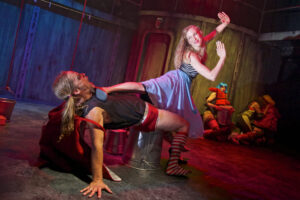
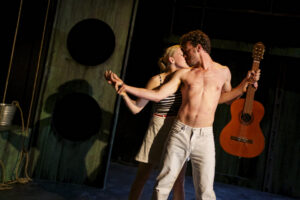
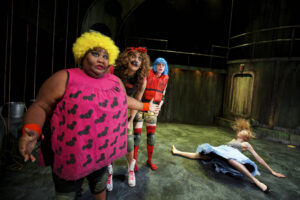



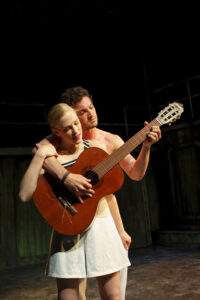





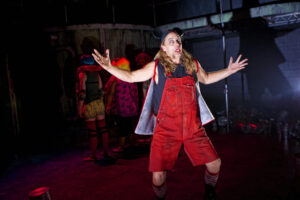
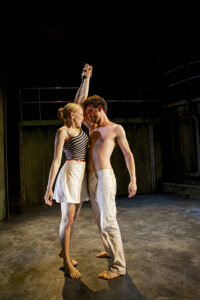
CREATIVE TEAM
- Director – Erika Chong Shuch
- Stage Manager – Nikita Kadam
- Costume Design – Christine Crook
- Properties Design – Devon Labelle
- Light Design – Allen Willner
- Set Design – Sean Riley
- Sound Design – Matt Stines
- ORIGINAL MUSIC – Nils Frykdahl
- ADDITIONAL MUSICAL ARRANGEMENTS – BETH WILMURT
- “APPLE TREE” CHOREOGRAPHY – LIZ TENUTO
- Technical Director – Chris Swartzell
- Production Assistant – Heather Kelly-Laws
- Assistant Director – Emma Nicholls
- Assistant Costume Designer – Alice Ruiz
- Master Electrician – Andrew Schwartz
CAST
- JEANNINE ANDERSON – Big Stone
- James Carpenter – Father
- Nils Frykdahl – Nasty interesting man
- Peter Griggs – loud stone
- Kenny Toll – Orpheus
- Megan Trout – Eurydice
- Beth Wilmurt – little stone

James Carpenter, Megan Trout, Peter Griggs, Jeannine Anderson, and Beth Wilmurt
THE SHOW
Written in 2004, Eurydice takes the classic myth of Orpheus and changes the perspective so that we experience the story from the point of view of Eurydice. In the original tale, Orpheus is grief-stricken when Eurydice dies and so he dares to travel to the underworld where he uses his gift of music to charm the lord of the underworld. Orpheus is allowed to escort Eurydice back to the land of the living on the condition that he walk in front of her without looking back. Unfortunately, he turns around just prior to reaching their destination and Eurydice is hurled back to the underworld. With Eurydice, we experience themes of love, loss, and redemption, all through the perspective of Eurydice. We have the opportunity to travel to the land of the dead, and hear the language of stones. Eurydice describes the process of dying, and transitioning to this new persona:
“I was not lonely / only alone with myself / begging myself not to leave my own body… How do you say goodbye to yourself?”
Yet this is not a dark, depressive world; Sarah Ruhl creates a tale steeped in metaphor and wondrous images. In the notes to the play, Ruhl writes: “The underworld should resemble the world of Alice in Wonderland more than it resembles Hades.” The play also has some intriguing stage directions. Ruhl comments:
“I remember a producer once paging through ‘Eurydice’ and saying, ‘This is impossible to do. There’s a raining elevator and in the stage direction it says that he throws her up into the sky.’ And I said, ‘Oh, well, this is all just literary suggestion and it’s all just trafficking in metaphor.’ He throws her up into the sky as a gesture. A raining elevator could be a sound cue and a light cue. It could be a child with a bucket pouring water. I’m always intrigued by how you put up the same play in a black box or in a site specific way.”

Megan Trout, Nils Frykdahl, and Erika Chong Shuch
FROM Director Erika Chong Shuch
“I am a performance maker that thrives in highly collaborative settings. I love creating messy rehearsal environments where there are way too many ideas getting thrown against a wall. I love processes that allow for a lot of failure. When I read ‘Eurydice‘, I feel the generosity, openness and terror of the work. I am inundated with images. The play makes me dream more spectacularly… ‘Eurydice’ is a playground. There are no rules. The openness is terrifying. The feelings are on the sleeve. Sarah Ruhl has written something that not only has room for collaborators, but demands that we bring all of our tricks to the table. The work asks us to flex our imaginations in profound and difficult ways, to imagine the world she introduces through our own lenses, experiences and sensibilities. ‘Eurydice’ asks us to create a distinct world for the characters, and the rules of the world are limitless. With this freedom, comes terror. And opportunity. And the hope that we create a home for the story to be told in all of it’s complexity and power… dreaming into this play makes me feel like my imagination needs to be wildly nimble. Wildly artful. Free. I think this is what makes me so excited to direct it. My work is to dream without limit.”
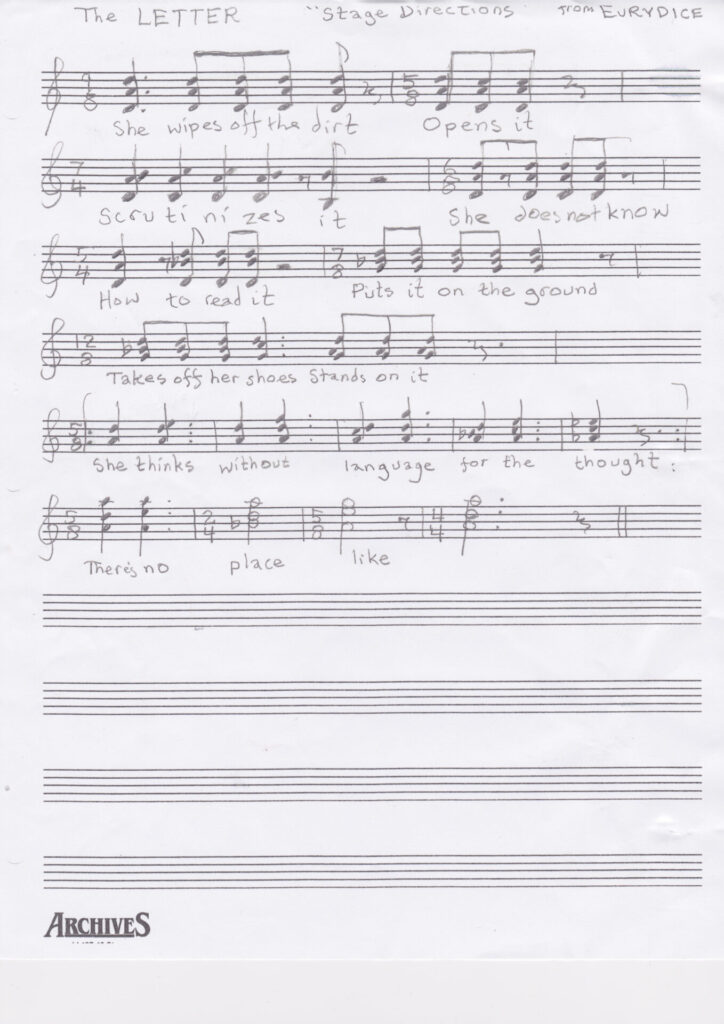
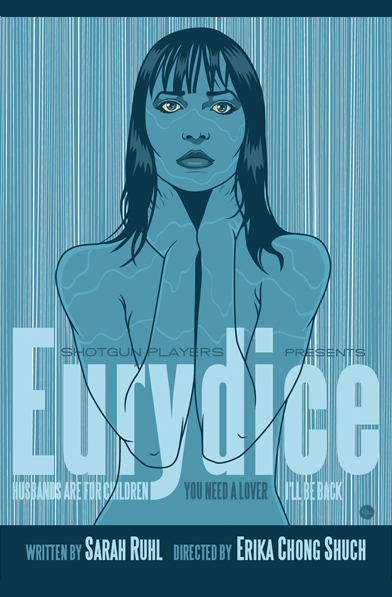
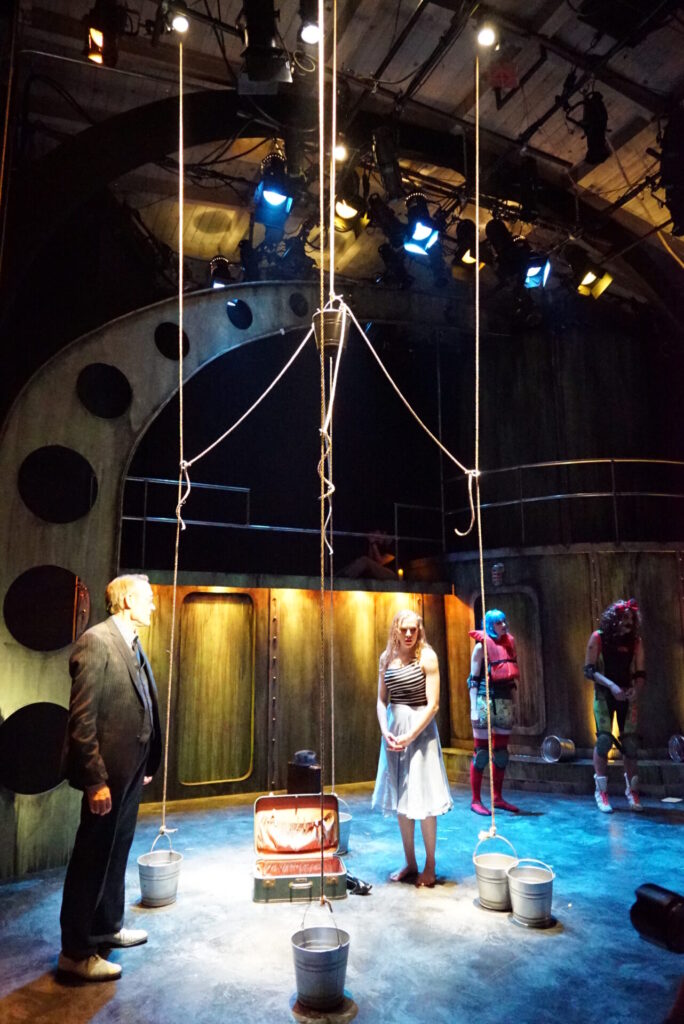
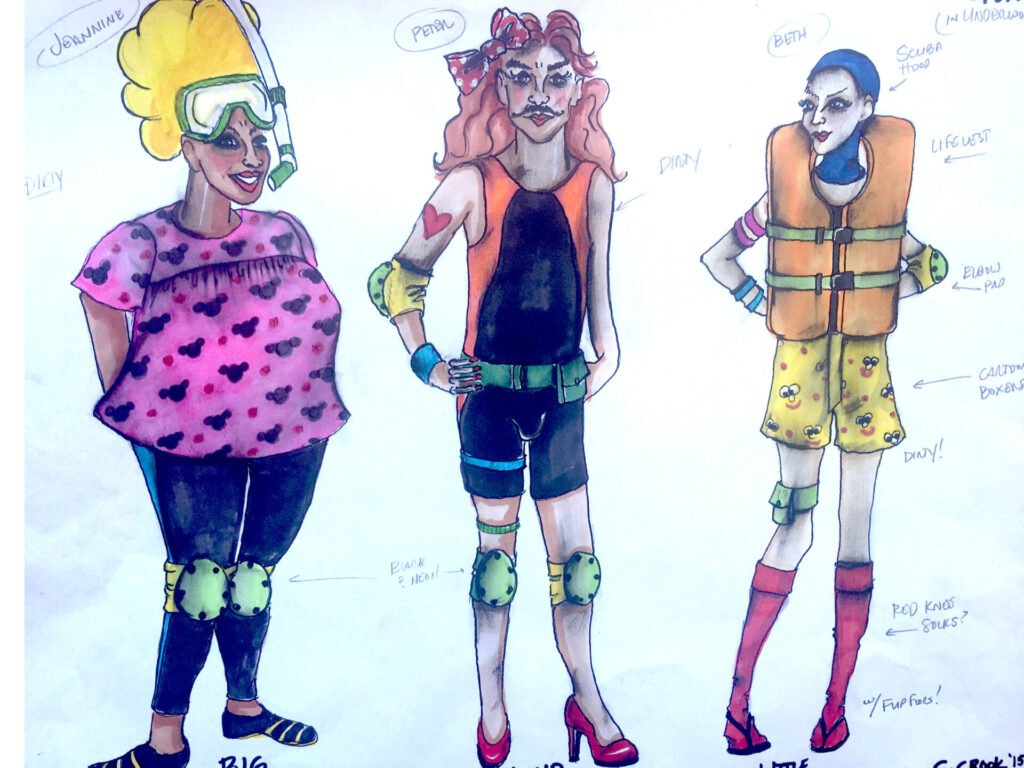

THE LETTER (“Stage Directions”) – Original Music by Nils Frykdahl
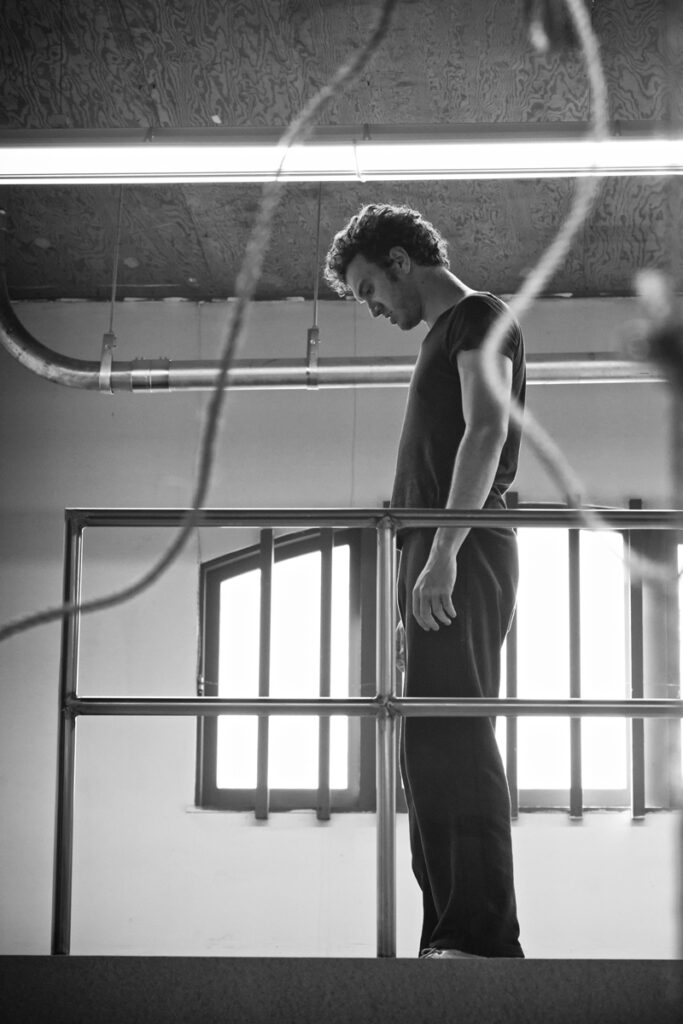
Kenny Toll (Orpheus)
THE MYTH
There are a few versions of the Orpheus myth, but perhaps one of the most famous is from Ovid’s Metamorphoses, written approximately 8 A.D. In Ovid’s story, Eurydice and Orpheus are married, yet there are strange portents at their wedding. The torches refused to light, and when Eurydice was walking through the grass she was bitten on the ankle by a snake. She died moments later. Orpheus, renowned for his music, summoned the lord of the underworld with a poignant song, asking that he might retrieve Eurydice from the depths below.
The Furies wept at his song; and Orpheus was granted his wish. There was only one condition: he must walk with his eyes forward through the Underworld and not look back at Eurydice. He must trust that she will follow. When he neared the entrance to the land of the living, he feared Eurydice was no longer behind him.
So he turned around: and Eurydice was hurled back into the underworld. Orpheus tried in vain to appeal to the lord of the Underworld once again to no avail: Eurydice was gone.
PLAYWRIGHT SARAH RUHL
TURNING LOSS INTO POETRY
Sarah Ruhl began her playwriting career under the tutelage of renowned playwright Paula Vogel at Brown University in the ‘90s. Paula Vogel wrote of her student: “She came into my intensive advanced playwriting seminar… A sophomore, but I thought at first she was a senior: she was quiet and serious, but so obviously possessed a mind that came at aesthetics from a unique angle. I assigned an exercise: to write a short play with a dog as protagonist. Sarah Ruhl wrote of her father’s death from that unique angle: a dog is waiting by the door, waiting for the family to come home, unaware that the family is at his master’s funeral, unaware of the concept of death.” Years later, Sarah Ruhl again explored themes of loss with Eurydice. Yet, as with life, the play is not solely focused on grief. There is also much humor throughout the piece; it balances both lightness and darkness.
“Lightness isn’t stupidity. It’s actually a philosophical and aesthetic viewpoint, deeply serious, and has a kind of wisdom—stepping back to be able to laugh at horrible things even as you’re experiencing them…
I like to see people speaking ordinary words in strange places, or people speaking extraordinary words in ordinary places.”
– SARAH RUHL

Reviews
“As boldly new as it is beautifully resonant… as exciting as seeing the tale for the first time.” – Robert Hurwitt
“A tale well told, full of memory and loss, signifying love and sorrow.” – Emily Mendel
“Bold, aggressively physical and packed with stunning imagery.”
“Shotgun’s take is stunning, creative, physical, and engrossing.”
Kedar K. Adour, Theatreworld
““Dazzling” and “smoldering” are the best words to describe Shotgun Players’ multi-layered Eurydice.“
Lou Fancher, SF Weekly
“This Eurydice is magical from beginning to end.”
“Eurydice has the sticking power of a vivid dream. It will seduce you, then startle you awake.”
“A fearless cast brings new life to an ancient tale of loss and, in the process, proves that the underworld is anything but dead.”
